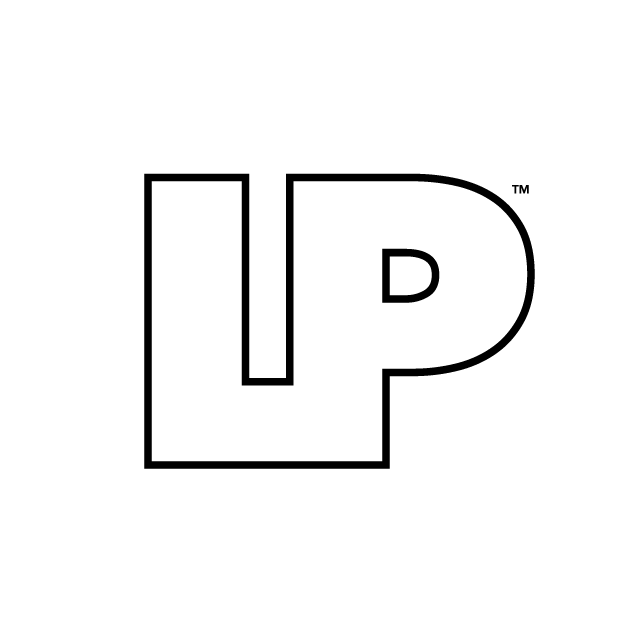Over 60% of marketers are focusing on growing their search engine optimization (SEO) and organic presence this year. SEO can boost your online ranking, allowing you to generate traffic, leads, and sales. In fact, over 50% of web traffic starts on an organic search. Unfortunately, over 75% of people don’t look beyond the first Google results page. If you want your SEO strategy to become a success, you need effective linkbuilding. Backlink strategies can help you generate more web traffic and boost your ranking.
Not sure where to start? Here are the 13 backlink strategies you need to succeed! With a strong backlink building strategy, you can set your website up for success.
Get started with these 13 easy tips for building backlinks today.
What Are Backlinks?
Before you learn how to build backlinks for your website, it helps to know a little more about them, first. What are backlinks, exactly?
Backlinks connect one website to another. When you receive a backlink from another website, Google will take notice. In fact, Google has considered backlinks an important search engine ranking factor for years.
Backlinks tell Google that other websites trust your content. It’s like a “vote” for that page. As you receive more backlinks, that page could rank higher in organic searches.
The higher you rank on Google, the more people will see your website. A higher search engine ranking can help you:
- Generate more website traffic
- Gather fresh leads
- Boost online sales
- Improve brand awareness and recognition
- Boost your credibility
- Appear as a thought leader in your industry
- Build brand trust and loyalty (increasing customer retainment)
- Improve your ROI
Building backlinks will help you rank above the competition. Consumers will click on your website before anyone else’s. Then, you can turn that website visitor into a lead!
Different Types of Valuable Backlinks
Before learning how to build backlinks, it helps to know which links to prioritize. Not all backlinks are valuable. Focusing on high-quality backlinks to boost your SEO ranking.
Here are a few different types of backlinks to consider.
Links to Trusted, Authoritative Websites
When searching for backlinks, focus on websites that Google already trusts. High-authority websites can make your site look like an authority, too. Websites with a strong Domain Authority can boost your ranking.
The more authority a site has, the more authority it can give your website.
Unfortunately, links from authoritative websites are difficult to earn. You can learn how to get high Domain Authority backlinks here.
Links That Include Your Target Keyword
Anchor text is the visible text you’ll click on to trigger a link. Look for links that include your target keyword. Choosing keyword-rich anchor text can improve your SEO rankings.
Try not to go overboard with this type of link. Google’s algorithm looks for sites that use black hat SEO strategies. Black hat SEO can hurt your search engine ranking.
The algorithm looks for sites that build backlinks with exact match anchor text.
Try to sprinkle one or two of these links into your backlink building strategy.
Websites That are Relevant to Your Website
Google looks to see how two websites are related when they link to each other. If the two links have no relation, it could impact the searcher’s user experience. Google wants to give its users the best possible experience.
Try to look for websites that are relevant to yours.
“Dofollow” Links
If a website has the “nofollow” tag attached to it, search engines could ignore it. These “nofollow” links don’t count in ranking algorithms.
Most links online are “dofollow” links, thankfully.
Most “nofollow” links include paid ads, press releases, and blog comments. Try to avoid these as part of your backlink strategy.
Domains That Aren’t Linking to You
What if the same website links to yours over and over again? Links from the same domain have diminishing returns. Try to mix up your backlink strategy!
Gather links from multiple high-authority websites to boost your ranking.
Why Do Backlinks Matter?
Why is a backlink building strategy so important to your SEO strategy?
Remember, backlinks are essential votes from other brands. With each backlink, Google will recognize you as a credible, valuable, and useful resource. Google wants to provide its users with the best content.
Google started using backlinks in its original search algorithm (RankBrain) back in 1998. While the algorithm continues to change, backlink strategies are still key to SEO.
In fact, almost 80% of Google’s search engine algorithm relies on off-page factors (factors outside of your website). You don’t have control over these factors. These include:
- Natural links
- Built links
- Created links
Natural links come to your website naturally. For example, another website might like your content and link to one of your blog posts on their website.
Built links are links you need to earn. You can reach out to PR experts or journalists for these links. You can also promote your content with ad campaigns.
Created links include content you created on press releases, forums, and directories. You don’t have to perform outreach for these links.
Without a backlink building strategy, your ranking could drop. Remember, the majority of users don’t look beyond the first page of a search. If your website doesn’t appear on the first page, you’ll lose customers.
Your customers will win those leads and sales instead.
By developing a backlinking strategy, you can boost your ranking, leads, sales, and ROI.
How to Build Backlinks
Now that we’ve answered the question “what are backlinks,” let’s talk about how to build backlinks. Here are 13 different backlink strategies you can use to boost your SEO ranking.
Mix and match a few of these strategies to improve your chances of building backlinks.
1. Create Link-Worthy Content
You have a 434% higher chance of ranking on search engines if your website has a blog. In fact, companies with blogs generate 67% more leads than those without. Meanwhile, active blogs receive 97% more links to their website than others.
One of the easiest ways to learn how to build backlinks is to create linkable assets. Make sure the content you create is worth linking to. Linkable assets can include:
- Blog posts
- Videos
- Polls
- Quizzes
- Infographics
- Surveys
- eBooks
Try creating infographics, videos, and other visual assets to capture backlinks.
If you want to create link-worthy content, take a look at your content marketing strategy. If it’s not high-quality, wow-worthy content, people won’t care about it. They won’t link to it.
How can your business provide customers value? What questions are your customers asking? How can you help them through your content?
Providing customers with valuable information can help you earn backlinks from high-quality, relevant authorities.
Look for resource pages, too. Resource pages can include local government websites, university sites, and travel or tourism boards.
Use SEMRush’s Backlink Analytics Tool to find resources that are already linking to your competitors’ websites. Then, develop a content strategy to grab that link’s attention!
The Skyscraper Technique
Have you tried the Skyscraper Technique? This technique involves:
- Finding content that already has a lot of links
- Making your content even better
- Promoting your content to anyone who links to the original piece
Focus on enhancing your own post to make it even better than the original.
2. Claim Your Google My Business Listing
Claim your business on any relevant business listings, including:
- Google My Business
- Yahoo Local
- Bing Places
- Zomato
- Trip Advisor
- Merchant Circle
- Yelp
- Yellow Pages
These links are nofollow. However, they can help boost your digital presence. Make sure your business information is up-to-date on each listing.
3. Use Broken Link Building
Take your competitor’s URL and insert it into a tool like Ahrefs that can find broken links.
Then, create content that would replace that backlink. Reach out to any webmasters that feature that broken link on their website. Ask them to replace the link using your content instead.
Replacing broken links can boost your ranking and help you generate more organic traffic. It can push you ahead of the competition, too.
Make sure to complete a backlink audit for your own website as well.
4. Use Network Outreach
Look for connections with websites or blogs that can host a link to your website. Network outreach can help you utilize connections you already have. These connections are more likely to help you than anyone else.
You can use tools like Ahrefs to determine which links you want to place for.
Start building a network of journalists, too. Connecting with writers can help your link appear in even more posts.
5. Create Email Signatures
Use the tools you already have at your disposal. Add a link to your email signature to push more traffic to your website. Make sure your email signature is engaging and click-worthy.
Don’t forget to add links to your social media accounts for even more touchpoints.
6. Host Virtual Events
Virtual events have increased by 1,000% since COVID-19 hit. One event platform has hosted over 52,000 events since the outbreak.
You can host virtual events to create additional backlinks and boost your online links.
Look for businesses and organizations you can partner with. Consider finding regional entertainers as well. You can use these connections for future collaborations, too.
7. Leverage Mentions
Want to nurture your existing relationships? Leverage mentions you already have.
Look for websites that mentioned your business in the past. Did they link to your content? If not, ask them to add a link to a page on your website.
You can use SEMRush’s Brand Monitoring Tool to determine who has already mentioned your brand.
Leveraging these existing mentions can help boost your rankings.
8. Use Q&A Sites
Use keyword research to determine which posts on Q&A sites like Quora already have high traffic volume. Look for relevant questions that contain those same keywords. Make sure the posts offer helpful, thoroughly researched answers.
Quora already has a high Domain Authority, meaning it can help boost your brand!
Attach a backlink to that post to increase your credibility, generate traffic, and boost your SEO ranking.
It’s important to note that Quora links are nofollow. However, they can still help you build connections you can utilize in the future. Someone who sees your post on Quora could link it to content on their website.
9. Utilize Influencers
Influencer marketing has a 578% return on investment. Meanwhile, nearly 50% of customers rely on influencer recommendations before making purchases. Over 90% of marketers believe influencer marketing is effective.
Look for influencers in your industry. Ask them to review your products or services. Then, have them link back to your website.
Working with influencers can help you leverage their existing brand trust and loyalty.
10. Get Local News Coverage
Connect with online news sources and pitch a post you’ve created. Focus on posts that are location-based and relevant. These sources can link to your website to help you attract more traffic.
You can use HARO and help a journalist. HARO connects journalists with helpful, relevant resources. You can connect with a journalist and show them you have the content you’re looking for.
You can also use listicles as part of your backlink building strategy. Listicles can feature your products or services in front of prospective customers. These lists will also feature your competitors.
Most listicles start with “Top 10…” or “The Best…”
Reach out to a blogger or journalist. Let them know why your business should appear on that listicle.
11. Create Seasonal Content
Is a holiday coming up? Look for hashtag campaigns on social media that you can use to your advantage. Create content with the season in mind to boost sharing and generate more backlinks.
12. Add Links to Directories
There are many directories online that already direct readers to businesses and brands.
For example, you can post on a university alumni list or directory.
Do you have any business associations, like your local Chamber of Commerce? Link on their directories, too!
13. Start Guest Blogging
Guest blogging allows you to write a post on someone else’s website. Then, you can link to your website within the content.
Look for websites that are similar to yours. Then, share your experience and expertise. You’ll leverage that website’s current audience to build your own!
Boost Your Ranking: 13 Backlink Strategies for SEO Success in 2021
Ready to boost your ranking in 2021? Keep these 13 backlink strategies in mind. With these 13 tips, you can reach more customers and improve your ROI.
Instead of falling behind the competition, you’ll establish your credibility in the industry and get leagues ahead.
Need help with your SEO and backlink building strategy? We’re here to help.
Contact us today to get started.









